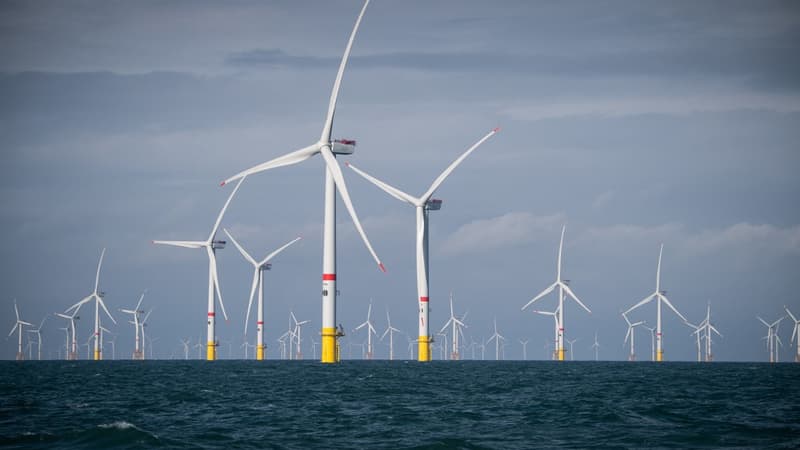Catch up. The National Assembly is considering since this morning the bill on the acceleration of renewable energy production, to fill the national gaps in the matter. In fact, France was in 2020 the only European country that did not respect the Union mandate regarding the use of renewable energy in more than 23% of its energy mix.
The executive took up the issue again in 2022, Emmanuel Macron called in his speech in Belfort in February to deploy 50 wind farms offshore (sailors), double the production of terrestrial wind turbines and multiply by ten the solar production. A project was born at the end of September in commission, before leaving for the Senate, which remodeled it profoundly.
The Assembly is considering it in turn but, importantly, having started the accelerated procedure, this “reading” of the lower house will be the only one, and the text that results from the votes could be final, if there is no major blocking point with the Senate does not appear. In the event of a blockade, on the other hand, Matignon could convene a joint joint commission – that brings together senators and deputies – to decide.
Accelerated processes, mayors without veto power
One of the objectives of the text is to make renewable projects much simpler and faster, while the government mentions terms ranging from 5 to 10 years of discussions for the establishment of solar or wind farms – on land What offshore. To this end, electronic public participation is encouraged and prefects can dispense with public consultations – and therefore lengthy debates – when simple online participation is essential. Terms and conditions remain to be determined.
In addition, the imperative reason of greater public interest (RIIPM), one of the three administrative reasons that allow not to embarrass the protection measures of protected animal species, should be extended to more renewable projects. Grid managers can also be authorized to anticipate work when a project is launched, before it is validated, to save precious months.
In the Senate, elected officials made some changes, some of them major. If they want to create a single window in each prefecture to make the application submission procedure for energy companies more transparent, they have also removed a lock that had caused much discussion in the commission: mayors will no longer have the right of veto to oppose to the projects.
Elected officials will rather define the areas where projects can be established, and a city council can oppose the creation of a priority location area in its municipality, but not reject de facto the installation of wind turbines, for example.
Solar car parks, offshore wind turbines
Another change introduced by the Senate: outdoor car parks with more than 80 spaces (and with a maximum area of 2,500 m2) must be equipped with shade structures that generate renewable energy, in particular solar panels.
More generally, the second objective of the text is to grant land to energy projects, in a more flexible way: wind projects should benefit from a simplified legal status, whether they are on the scale of a full seafront or a more restricted project. . RTE, the network manager, will be able to anticipate works more easily.
Above all, the Senate once again took a more radical position than the initial commission, by eliminating the 40-kilometer limit, which was going to favor wind projects located more than 40 kilometers from the coast. The limit, judges the Upper House, is detrimental to employment in the sector. Thus, the blades could rotate in the “exclusive economic zones” located 22 kilometers from land.
It should be noted that, apart from these discussions, the text must allow the development of agrovoltaism -the installation of solar panels on agricultural land- legally regulating the conditions for the establishment of this double activity.
Purchase contracts, rebates and zero-rate loans
The “renewables” bill should finally make it possible to “better spread the value of renewable energies”, according to public authorities. Specifically, it is about better defining who benefits from this windfall.
A stricter legal framework must be defined on electricity purchase contracts: this is an essential link for construction companies, which can project investments knowing at what price their electricity production will later be purchased.
The Senate decided in its only reading to annul, in addition, the “territorial participation of value”: if the Government initially wanted to allow residents to see their bills reduced, it preferred to grant these bonuses mainly to municipalities, a way of attracting projects at a political level . On the other hand, it has introduced a new measure on the solar component: a zero-rate “eco-loan” for the construction of solar panels. A fund will also cover risks for producers, in case of dispute with local residents or municipalities.
Source: BFM TV


